In October 2022, environmental leaders and academics in Bali released new findings that demonstrated a connection between the rapid development of tourism infrastructure on the island and the rise in natural disasters.
Further research has highlighted how water scarcity impacts some of Bali’s most important cultural landmarks. This, is turn, is affecting Balinese heritage preservation, agriculture, and other vital industries on the island, including tourism.
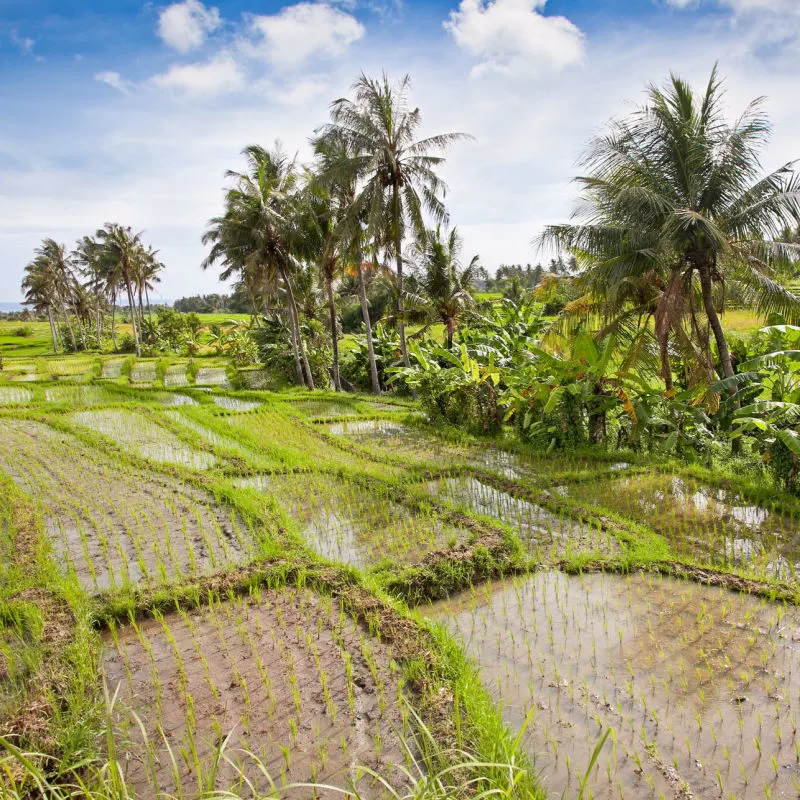
Bali’s widely acknowledged water crisis is worsening. This year communities in East Bali have struggled with serious water scarcity for months on end. Water scarcity is a very real issue on the Nusa and Gili Islands too. Water shortages are known to negatively impact UNSECO heritage sites in Bali, including the Batur Geopark.
The widespread issue of water scarcity on the island is felt in the drying of community wells and agricultural landscapes; this impacts the daily lives and livelihoods of families across Bali, as well as the tourism industry. Experts in Bali are speaking out to say that water control policies must be more strictly enforced else the stark consequences of a deterioration in the situation will be realised sooner rather than later.
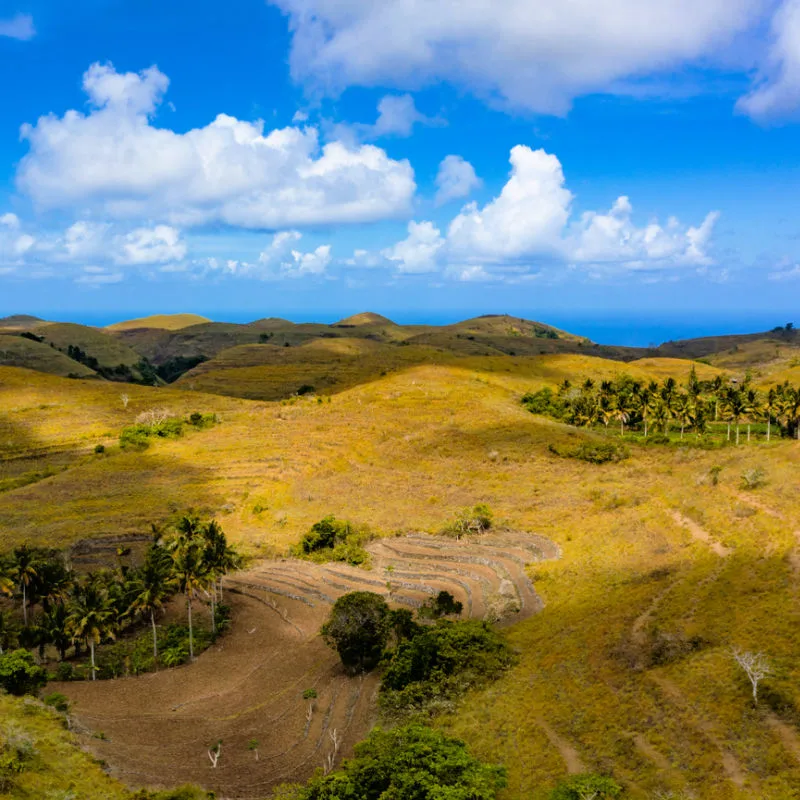
Bali has an island that has been traditionally managed using a ridge-to-reef principle, known in Balinese as ‘subak.’ Bali depends on cater lakes, rivers, and shallow groundwater as a volcanic island for its fresh water supply. The subak system works in harmony with the freshwater supplies to distribute water to communities through an ecosystem of canals, dams, streams, and tunnels.
Top 5 Travel Insurance Plans For 2023 Starting At $10 Per Week
Easily Earn Points For Free Travel
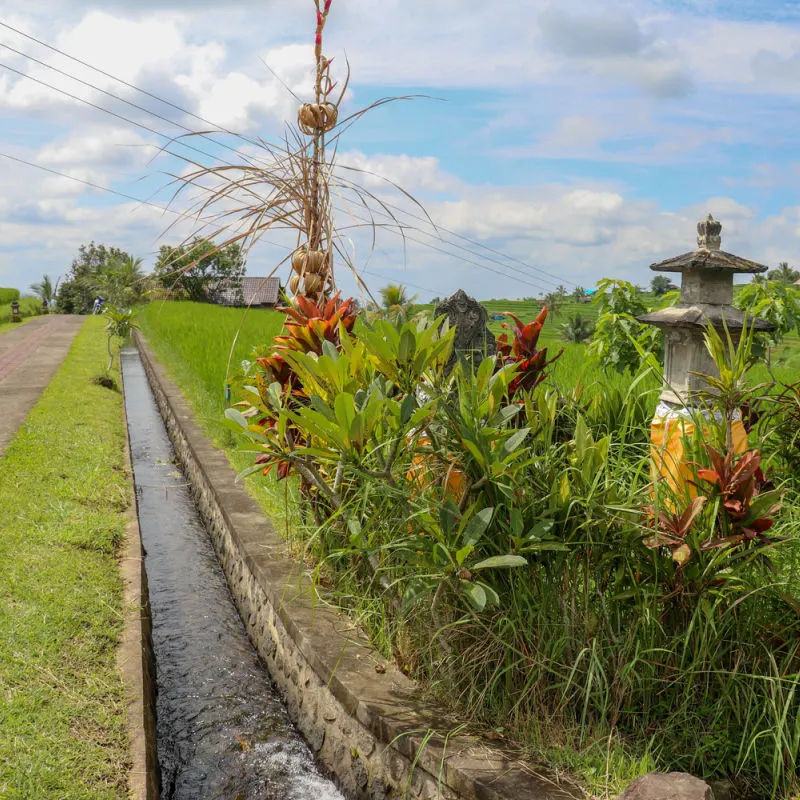
While correlation is not causation, the increase in the number of people living in Bali, and depending on Bali’s natural resources, has increased dramatically in the last 40 years. Between 1980 and 2020, the population of Bali increased by over 70%. At the same time came the tourism boom. In the early 80s, Bali welcomed less than 140,000 tourists every year.
Just before the pandemic, over 6 million international tourists arrived in one year alone, with a further 10 million domestic travelers exploring the Island the Gods too. This has all put undeniable pressure on the subak system and natural freshwater supply in Bali, leading to the dire situation of water scarcity the island faces today.
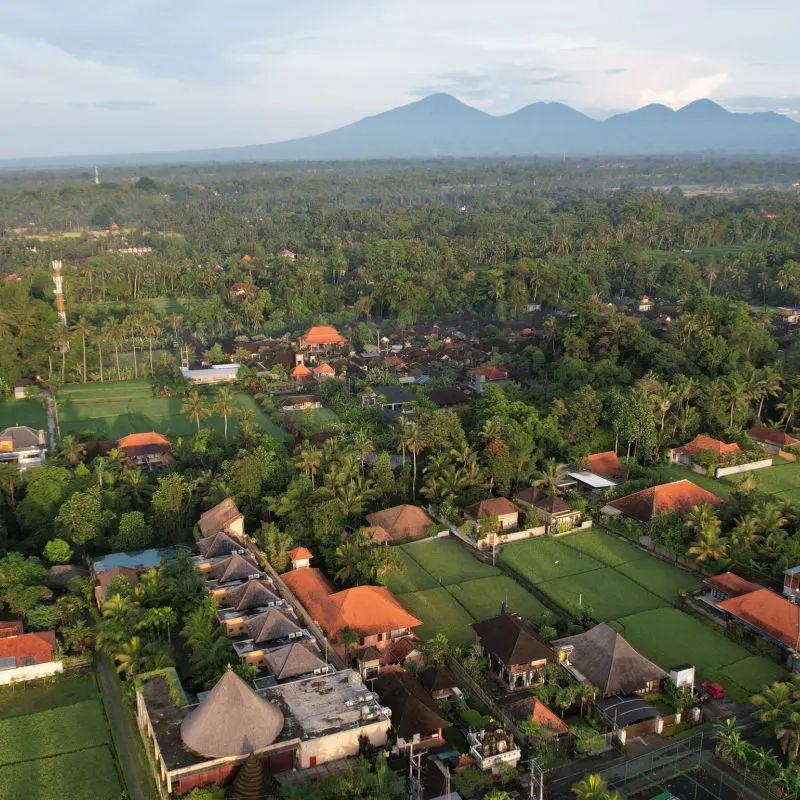
Speaking to reporters, researcher Stroma Cole from the University of Westminster shared her findings from her studies of water scarcity and tourism in Bali. She explained that looking through the lens of tourism, the industry is putting huge amounts of pressure on the subak system and has actively reduced its capacity. A conclusion was also reached by Udayana University in October.
Cole explained how the water table in Bali is dropping as residents and businesses tap into unregulated wells and boreholes rather than the government water system. The reason for this is largely cost-related. Cole said “At the moment, it is the cheapest source of water for people to use, so why wouldn’t you use that?”.
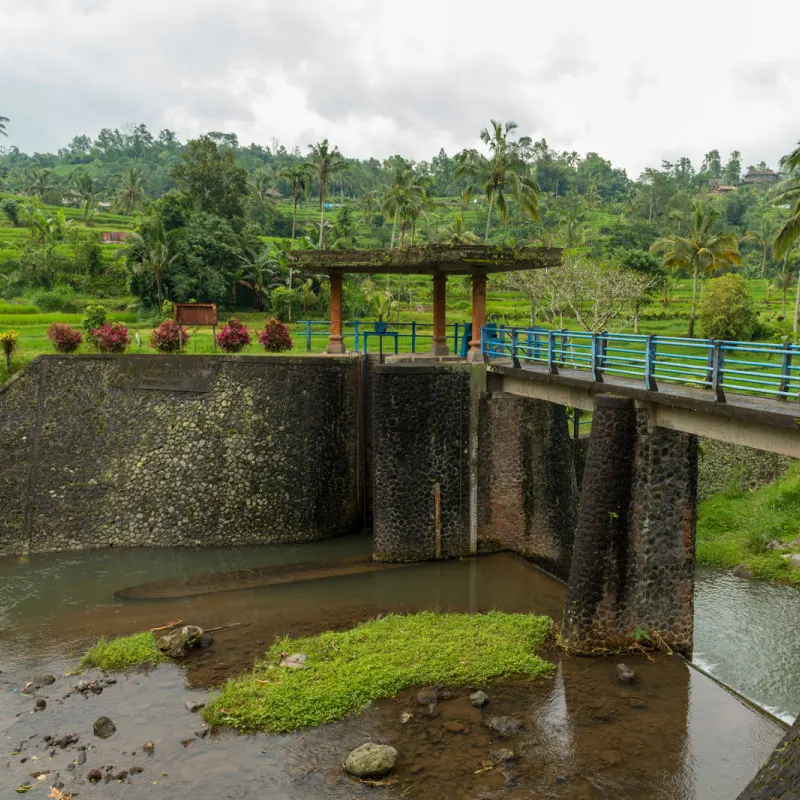
Cole highlighted how Bali does have water regulations, including water licenses and taxes. Yet, as her research found, there is very little enforcement of the policies. “The rules which exist are excellent rules, but they are not enforced”.
Putu Bawa, the project manager for the Bali Water Protection program, explained that tourism is important to Bali, but without enforcement of existing water protection legislation, the island’s natural resources sit in jeopardy. Bawa said, “We need to do this together for the sake of the survival of the island”.
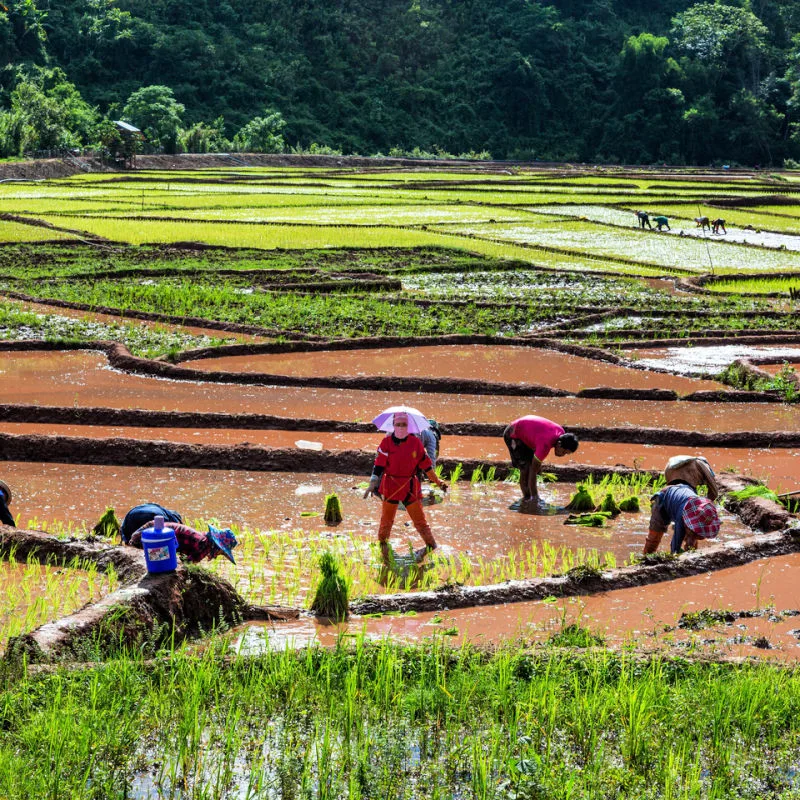
Research from top universities is showing that increased natural disasters, including flooding, seawater intrusion, landslides, and even unseasonably hot and dry monsoon months, can all be linked back to the development of Bali’s natural landscapes in the name of development and industry.
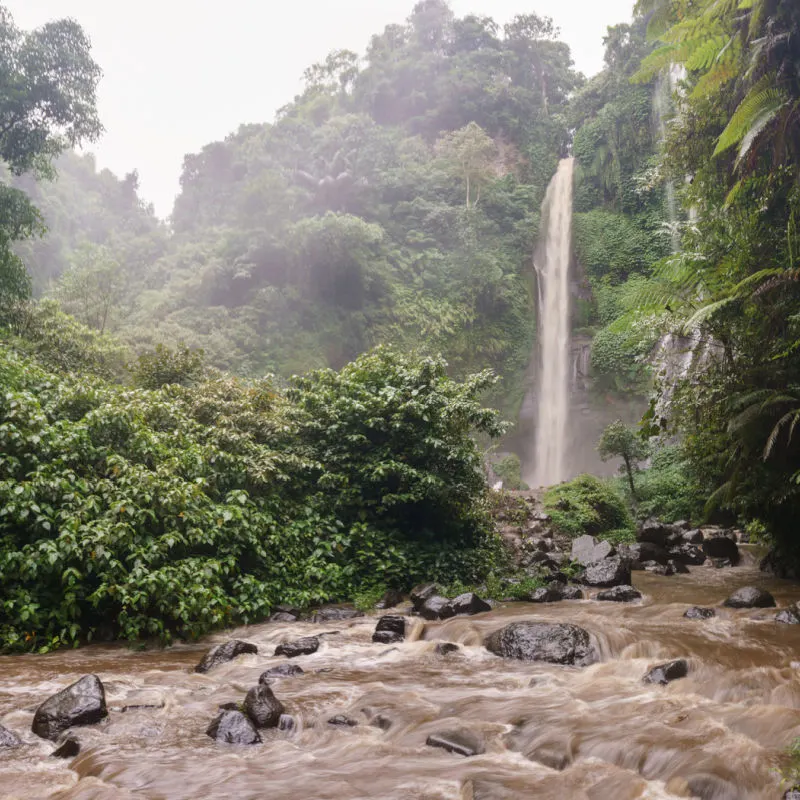
Bali’s Governor Wayan Koster is not shying away from talking about the issue. During a speech in late September, he tackled the topic of food and water scarcity, the future of tourism, and sustainable development. He told the audience, “the solution to building tourism while maintaining food security is to build monumental and fundamental infrastructure, as well as tourism that [promotes] local agricultural production”. These projects include the Bali Maritime Tourism Hub and the Gilimanuk-Mengwi Toll Road.
Remove All Ads & Unlock All Articles… Sign up for The Bali Sun Premium

Plan Your Bali Holiday:
Book The Best English Speaking Drivers For Airport Transfers & Tours
Choose From Thousands of Bali Hotels, Resorts, and Hostels with Free Cancellation On Most Properties
Book Cheap Flights To Bali
Don’t Forget Travel Insurance That Covers Medical Expenses In Bali
For the latest Bali News & Debate Join our Facebook Community
SUBSCRIBE TO NEW POSTS
Enter your email address to subscribe to The Bali Sun’s latest breaking news, straight to your inbox.
Discover more from The Bali Sun
Subscribe to get the latest posts sent to your email.

Exp
Wednesday 14th of December 2022
Quote "[Koster stated] the solution to building tourism while maintaining food security is to build monumental and fundamental infrastructure, ...These projects include the Bali Maritime Tourism Hub and the Gilimanuk-Mengwi Toll Road."
How is receiving cruise ships of any benefit? 1. The ships receive a lot of fresh water 2. The ships will dump their trash/sewage 3. Ship passengers add to congestion on the roads
About time gov. start enforcing their own laws and regulations related to zoning, building codes.
All new resorts/hotels must be required to have 1. rainwater catchment and storage 2. sewage treatment plant 3. trash separation/recycling 4. solar panels to produce electricity 5. solar heaters 6. enough parking for guests 7. Minimum green area/trees relative to building footprint
Yuoku
Wednesday 14th of December 2022
The only rules Bali enforces are those that can be used against foreigners to extort money out of them.
For locals, there are no rules. Garbage gets thrown everywhere, burned with toxic plastic pollution, forests are cut down daily to build more villas, without any land management, sewerage systems, etc. The water problem is in nobody's mind except some foreign researcher.
All the land is for sale and destruction. The minds are as polluted as the island, but too cowardly to take any responsibility. Foreigners are sometimes cleaning the beaches after dirty Balinese, which is pointless.
Neil gill
Wednesday 14th of December 2022
Why aren't there many moore dams in Bali to save the rains that do happen. There is millions of litresof water running off every rainy season. The othe way is to stop the development of many large hotels pulling the water from the ground
Rod Wilkinson
Wednesday 14th of December 2022
Please wake up before it’s to late.